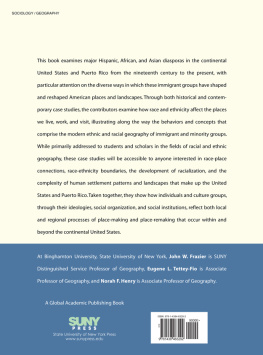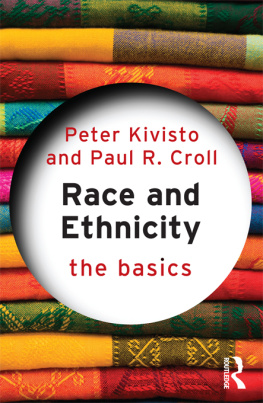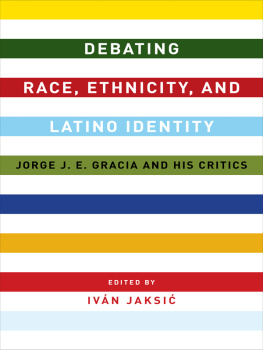Race, Ethnicity, and Consumption
Race, Ethnicity, and Consumption: A Sociological View looks at the central concerns of consumer culture through the lens of race and ethnicity. Each chapter illustrates the connections between race, ethnicity, and consumption by focusing on a specific theme: identity, crossing cultures, marketing and advertising, neighborhoods, discrimination, and social activism. By exploring issues such as multicultural marketing, cultural appropriation, consumer racial profiling, urban food deserts, and racialized political consumerism, students, scholars, and other curious readers will gain insight on the ways that racial and ethnic boundaries shape, and are shaped by, consumption. This book goes beyond the typical treatments of race and ethnicity in introductory texts on consumption not only by providing a comprehensive overview of the major theories and concepts that sociologists use to make sense of consumption, race, and ethnicity, but also by examining these themes within distinctly contemporary contexts such as digital platforms and activism.
Documenting the complexities and contradictions within consumer culture, Race, Ethnicity, and Consumption is an excellent text for sociology courses on consumers and consumption, race and ethnicity, the economy, and inequality. It will also be an informative resource for courses on consumer culture in the broader social sciences, marketing, and the humanities.
Patricia A. Banks is the author of Represent: Art and Identity Among the Black Upper-Middle Class and Diversity and Philanthropy at African American Museums. She is a past Mellon Fellow at CASBS at Stanford University, and a past Fellow at the Hutchins Center at Harvard University. She is Associate Professor of Sociology at Mount Holyoke College.
First published 2021
by Routledge
52 Vanderbilt Avenue, New York, NY 10017
and by Routledge
2 Park Square, Milton Park, Abingdon, Oxon, OX14 4RN
Routledge is an imprint of the Taylor & Francis Group, an informa business
2021 Taylor & Francis
The right of Patricia Banks to be identified as author of this work has been asserted by her in accordance with sections 77 and 78 of the Copyright, Designs and Patents Act 1988.
All rights reserved. No part of this book may be reprinted or reproduced or utilised in any form or by any electronic, mechanical, or other means, now known or hereafter invented, including photocopying and recording, or in any information storage or retrieval system, without permission in writing from the publishers.
Trademark notice: Product or corporate names may be trademarks or registered trademarks, and are used only for identification and explanation without intent to infringe.
Library of Congress Cataloging-in-Publication Data
Names: Banks, Patricia Ann, author.
Title: Race, ethnicity, and consumption: a sociological view / Patricia A. Banks.
Description: New York, NY: Routledge, 2019. | Includes bibliographical references and index.
Identifiers: LCCN 2020011173 (print) | LCCN 2020011174 (ebook) | ISBN 9781138562608 (hbk) | ISBN 9781138562615 (pbk) | ISBN 9781315121147 (ebk)
Subjects: LCSH: Minority consumers. | Target marketing. | Group identity. | Consumption (Economics)Social aspects.
Classification: LCC HF5415.332.M56 B35 2019 (print) | LCC HF5415.332.M56 (ebook) | DDC 306.3089dc23
LC record available at https://lccn.loc.gov/2020011173
LC ebook record available at https://lccn.loc.gov/2020011174
ISBN: 978-1-138-56260-8 (hbk)
ISBN: 978-1-138-56261-5 (pbk)
ISBN: 978-1-315-12114-7 (ebk)
Typeset in Bembo
by codeMantra
For my grandmothers Lula Holt Banks and Geneva Marie McGee
Sociologists have long addressed issues related to race, ethnicity, and consumption. However, research on this topic has been scattered across various subfields. For example, there is a rich research tradition on discrimination in the housing and credit markets. Consumption, race, and ethnicity are also touched on in other sociological scholarship, such as the literatures on assimilation, ethnic entrepreneurship, social movements, and cultural capital. Despite race, ethnicity, and consumption being of concern to sociologists in a range of subfields, it is rare for this scholarship to be considered as a whole. At a time when consumption itself as a subfield has become more institutionalized in the discipline, and there is widespread public interest in issues such as discrimination in the marketplace, culture and the maintenance of ethnoracial minority identities, and corporate boycotts to contest inequality, it is especially important that sociological approaches to race, ethnicity, and consumption are compiled in one volume. Race, Ethnicity, and Consumption addresses this need and gives readers an opportunity to identify and examine intersections and linkages that occur across the disparate approaches.
This book provides an overview of the sociological scholarship on race, ethnicity, and consumption by exploring six themes: identity, crossing cultures, marketing and advertising, neighborhoods, discrimination, and social activism. Research in other disciplines that is consistent with sociological approaches to these themes is also occasionally discussed.
Race, Ethnicity, and Consumption is designed to be read either in its entirety or as separate chapters. For readers interested in how sociologists have treated race, ethnicity, and consumption across the discipline, reading each chapter is suggested. For those interested in particular topics, such as identity, discrimination, or social activism, reading the specifically themed chapters, or subsections within chapters, is recommended.In some cases, subjects are treated across chapters. The index can be used to identify these topics.
With respect to terminology, the following words are generally used in reference to major racial and ethnic groups: white, black/African American, Asian/Asian American, Native American/American Indian, Latinx/Latino/Latina/Hispanic. In some cases, specific words are used to reflect common terminology within particular contextssuch as the typical use of the term Hispanic in multicultural marketing.
I am very grateful for a recent sabbatical during which I made significant progress on this project. During this period, I received funding from Mount Holyoke College, as well as a residential Andrew W. Mellon Foundation Fellowship from the Center for Advanced Study in the Behavioral Sciences at Stanford University.
Introduction
In 2008, the tech company Airbnb disrupted the hotel industry when it introduced an online platform that allowed everyday homeowners to rent their homes to travelers. By 2016, the hashtag ).
This example highlights several key issues related to Race, Ethnicity, and Consumption, such as discrimination in the marketplace, multicultural marketing, and racialized political consumerism. race, ethnicity, and consumption explores these themes as well as other central concerns in the study of race, ethnicity, and consumption from a sociological perspective. Before delving into the intersections of race, ethnicity, and consumption, it will be helpful to review how sociologists have thought about these, as well as related concepts, independently. First, an overview of consumption is provided, followed by an overview of race and ethnicity.











